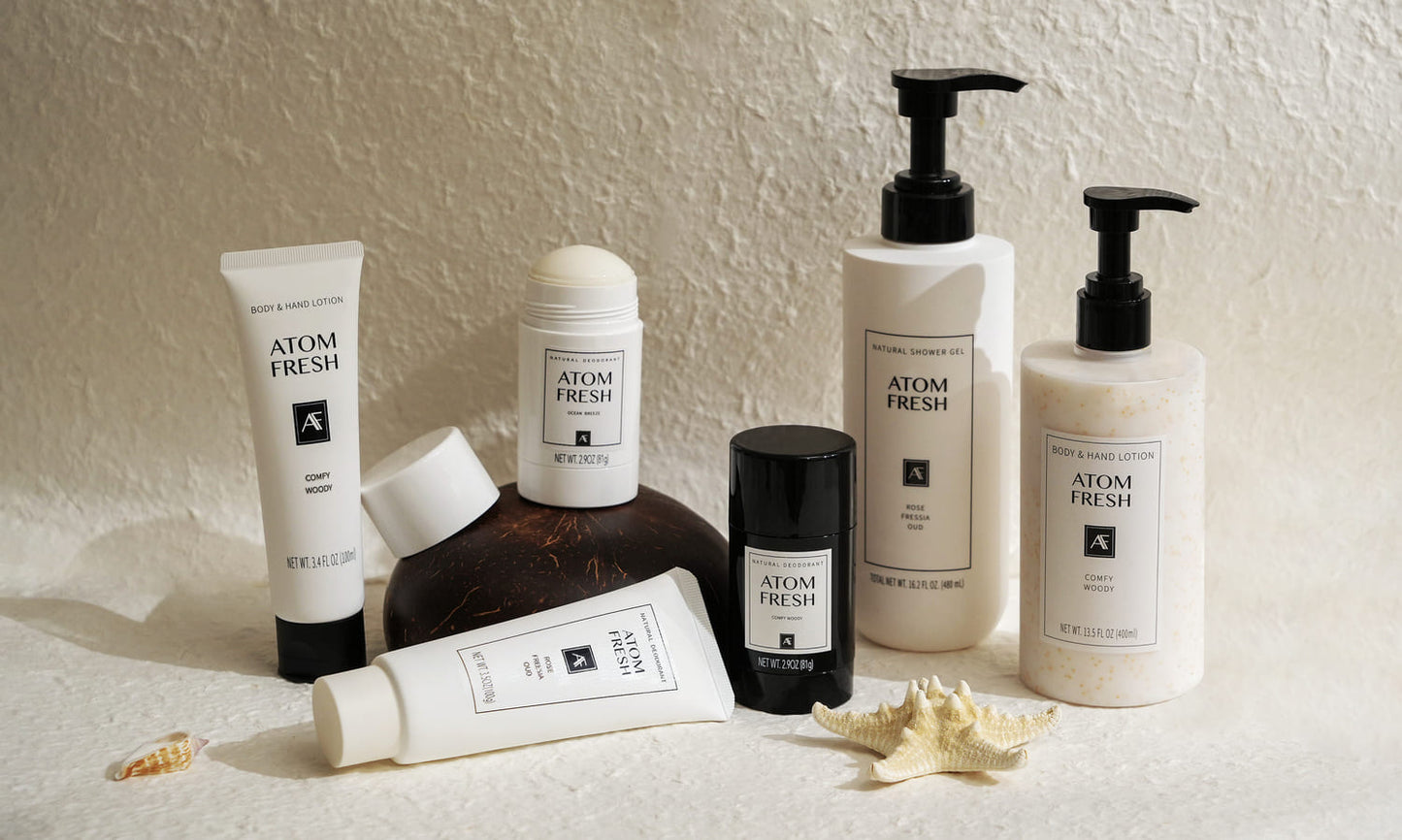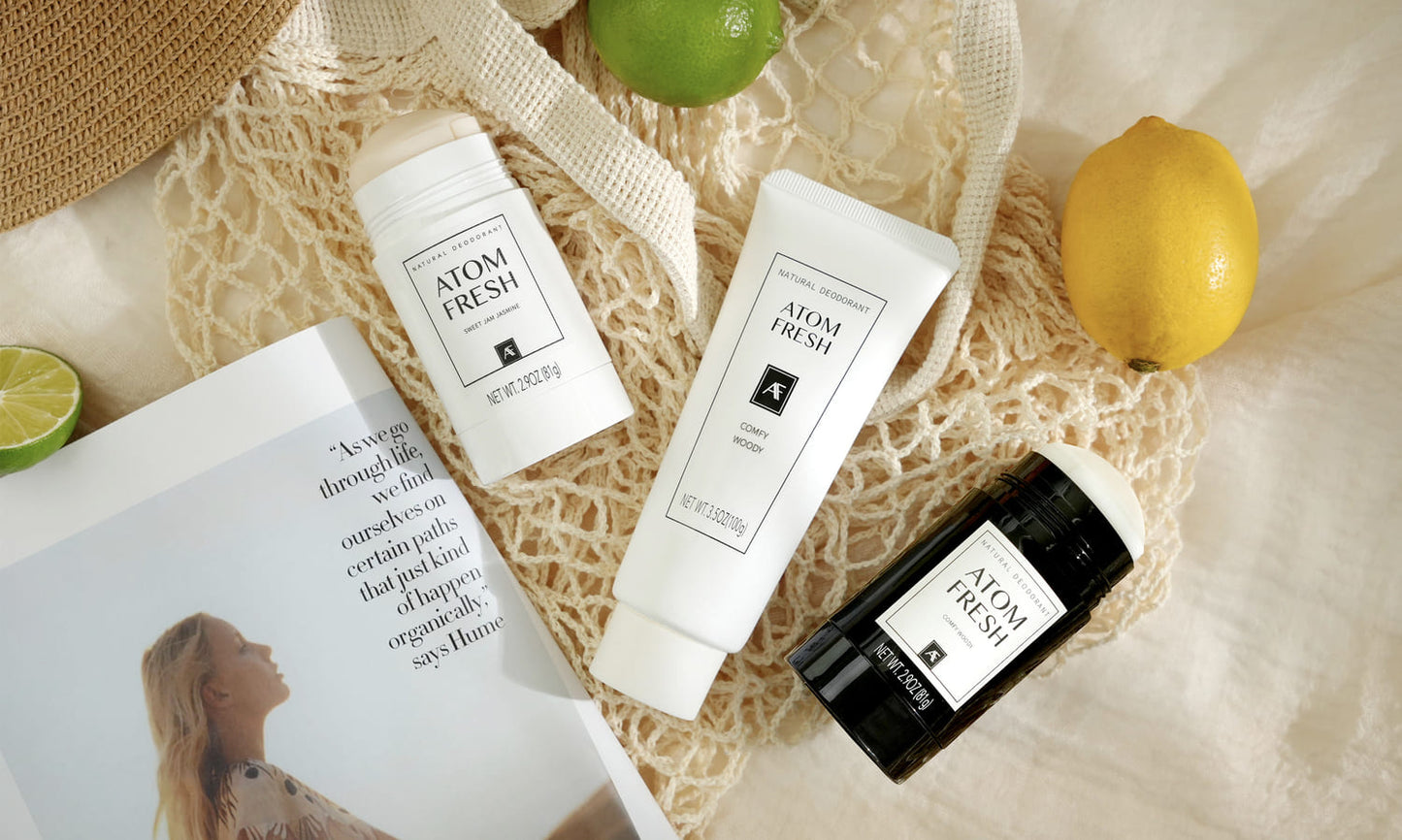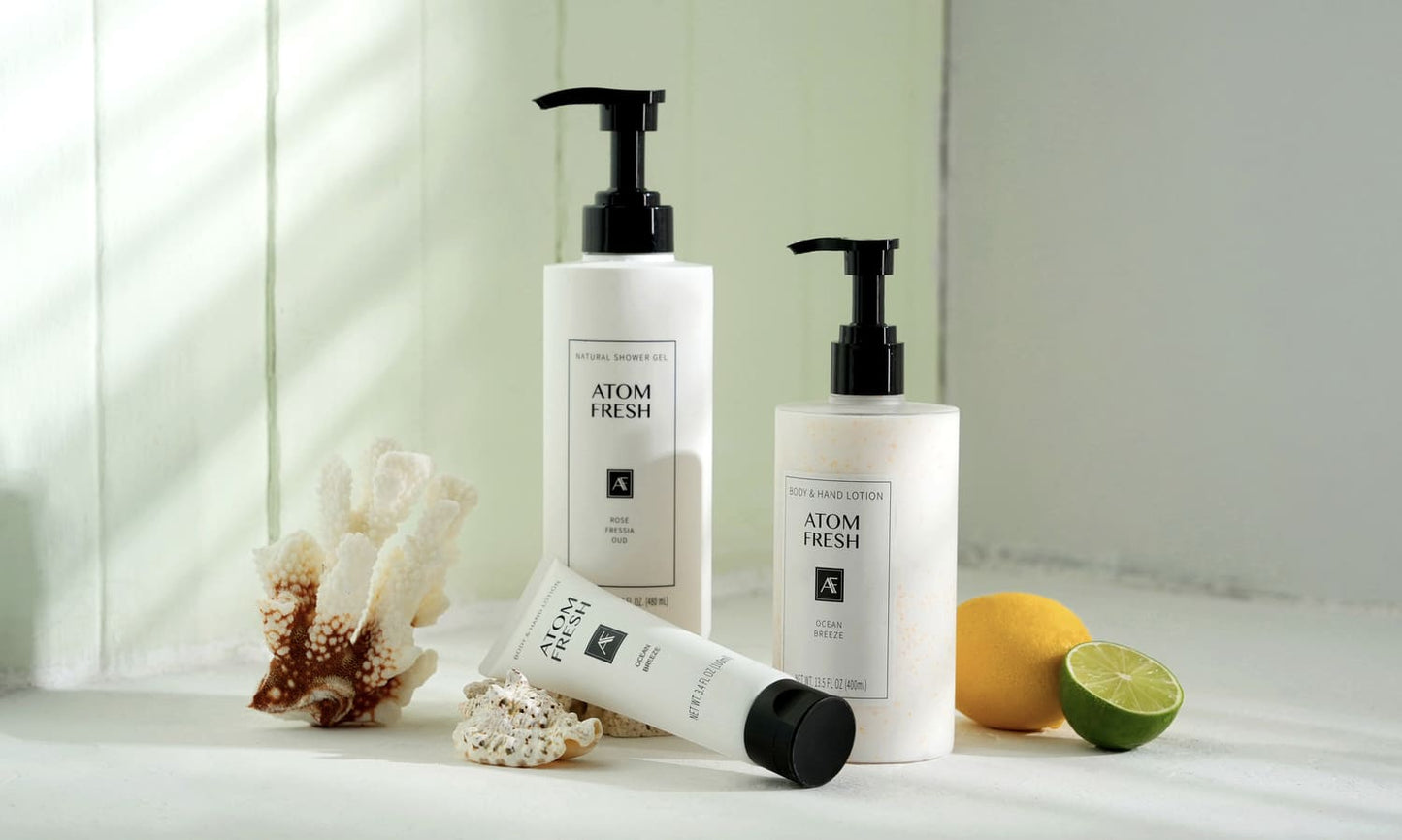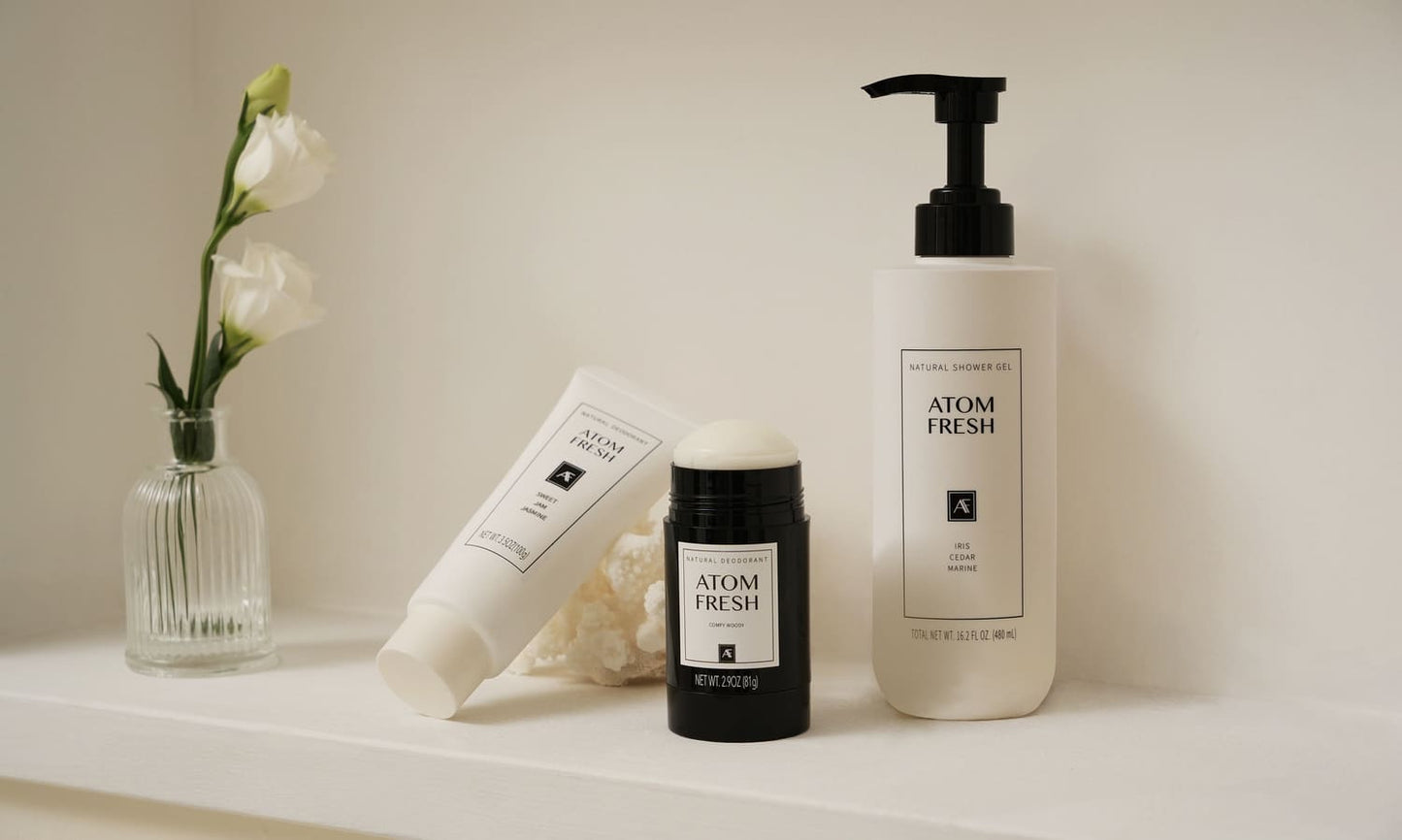Body odor is something we all deal with, but some people notice it more intensely than others. If you’ve ever wondered whether body weight plays a role in how strong body odor becomes, the answer is yes—to a degree. But before jumping to conclusions, it’s important to understand that body odor is influenced by a complex mix of biology, lifestyle, and environment. Weight is just one piece of the puzzle.
By breaking down the science behind sweat and odor, and learning practical ways to manage it, you can gain confidence in your daily routine. And with the right self-care products, such as natural deodorant balms from AtomFresh, staying fresh becomes both achievable and empowering.
Why Body Odor Happens
At its core, body odor is caused when sweat mixes with bacteria on your skin. The sweat itself is odorless. However, once it interacts with naturally occurring skin microbes, it gets broken down into compounds that carry a distinctive smell.
There are two main types of sweat glands:
- Eccrine glands: Found all over the body, they produce watery sweat to regulate body temperature.
- Apocrine glands: Concentrated in areas like the armpits and groin, they release thicker sweat rich in proteins and lipids—ideal fuel for bacteria, which leads to odor.
Research shows that odor intensity is directly tied to the composition of sweat and the balance of skin microbiota. That’s why two people can sweat the same amount, yet smell completely different.
How Weight Can Influence Body Odor
1. More Skin Folds = More Trapped Moisture
Individuals with higher body mass may naturally have more skin folds, such as around the abdomen, thighs, or under the arms. These folds trap sweat and heat, creating warm, moist environments where bacteria thrive. Over time, this can intensify odor and even increase the risk of skin irritations, rashes, or fungal infections.
2. Increased Sweat Production
Larger bodies often generate more heat and have higher basal metabolic activity, which can lead to greater sweat output. More sweat means more interaction with skin bacteria—and more odor. For example, people with overweight or obesity may find themselves sweating even during light activity, or feeling damp more quickly in warm environments.
3. Friction and Clothing Choices
Skin-to-skin friction in areas like the thighs or underarms can create hotspots where sweat lingers. Combined with tighter clothing or synthetic fabrics that don’t breathe, this can worsen odor. Breathable fabrics such as cotton, bamboo, or moisture-wicking blends make a big difference in keeping sweat from becoming trapped.
4. Differences in Skin Microbiome
Recent studies suggest that skin oil production and microbial balance vary across individuals, and body size can influence these differences. People with more oily or moist skin environments may host different bacterial communities—some of which produce stronger-smelling compounds. Maintaining healthy skin through gentle cleansing and balanced skincare can help regulate this.
Other Contributing Factors
While weight can contribute, body odor is rarely about just one factor. Other influences include:
- Diet: High-protein foods, spices (garlic, onions), alcohol, and processed meals can alter sweat composition.
- Hormones: Puberty, menopause, and conditions like thyroid imbalance affect sweat production and odor.
- Health Conditions: Diabetes, kidney disease, or infections can lead to distinct, sometimes stronger odors.
- Stress: Stress-induced sweat is produced by apocrine glands and tends to smell more pungent.
Practical Solutions for Long-Lasting Freshness
Shower regularly to stay fresh
Regular showers help remove sweat and odor-causing bacteria. Staying clean is the first step to long-lasting freshness.
Use a Deodorant Cream or Balm
Switch to a natural option like AtomFresh deodorants, which are aluminum-free and baking soda-free, designed to protect delicate underarm skin. Choose the scent that matches your vibe:
- Rose Freesia Oud – elegant and bold
- Ocean Breeze – light and refreshing
- Sweet Jam Jasmine – fruity and playful
- Comfy Woody – warm and grounding
Wear Breathable Fabrics
Choose moisture-wicking, loose-fitting clothes — especially during summer or workouts.
Maintain a Balanced Diet
Eat foods rich in fiber, antioxidants, and hydration — and limit spicy, fried, or heavily processed options.
Final Thoughts
While weight can influence body odor, it’s only one part of a much larger picture. Factors like diet, hormones, stress, and clothing all play critical roles. What matters most is building a routine that respects your body and supports your confidence.
At AtomFresh, we believe deodorant should go beyond odor control—it should also care for your skin. That’s why our natural deodorant balms are aluminum-free, baking soda-free, and enriched with nourishing ingredients to keep delicate underarm skin soft, balanced, and protected. With four unique scents, AtomFresh fits seamlessly into your daily self-care ritual, no matter the season or your lifestyle.
Take the first step toward freshness that feels good for your body and your skin—try AtomFresh natural deodorant balm today and make confidence part of your everyday routine.
FAQs
1. Does being overweight automatically mean stronger body odor?
Not necessarily. While body size can increase sweat and bacterial activity, odor strength also depends on diet, hygiene, clothing, and overall health.
2. Can losing weight reduce body odor?
Weight loss can reduce skin folds and sweat volume, which may help with odor, but it’s not a guaranteed fix. Good hygiene and product choices remain important.
3. Is deodorant enough to manage odor?
Deodorant helps mask odor, while antiperspirants reduce sweat. For many people, combining deodorant with lifestyle habits (diet, clothing, stress management) provides the best results.
4. Why choose a natural deodorant like AtomFresh?
Natural deodorants are gentler on sensitive skin and avoid harsh chemicals like aluminum and baking soda. AtomFresh also nourishes skin, making it part of a holistic skincare routine.
5. What if odor persists despite lifestyle changes?
Persistent or unusually strong odor may signal an underlying health condition. Consulting a healthcare provider can help rule out medical causes.
References
- American Academy of Dermatology — Hyperhidrosis: Self-care Tips
- Cleveland Clinic — Body Odor: Causes & When to See a Doctor
- DermNet — Bromhidrosis (Body Odour): Causes, Symptoms, Treatment
- NIH/PMC — Microbiota and Malodor: Etiology and Management (Review)
- American Society for Microbiology — Microbial Origins of Body Odor






